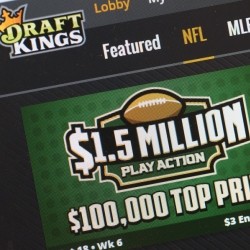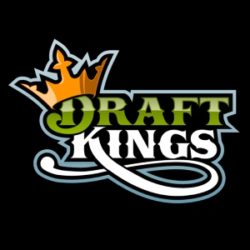What’s Next For The US Daily Fantasy Sports Industry?

Daily fantasy sports betting has been in the news a lot lately, and the stories have not been positive. Accusations of what amounts to insider trading has everyday people, legislators and regulators focused warily on the daily fantasy sports betting industry, and debates are raging about whether or not using the online sites constitutes gambling. It seems that in Nevada the debate has come to an end as far as the Nevada Gaming Control Board is concerned; in mid-October, the board issued their ruling and declared daily fantasy sports gambling.
The Impact of the Ruling
The Nevada Gaming Control Board released a full report detailing their findings after investigating the daily fantasy sports betting industry. In it, the board explains that sites like FanDuel and DraftKings fit the state’s definition of gambling because they accept wagers from players. The board also stated that it does not matter if winning requires skill; the Nevada laws define any activity that includes wagering as gambling.
Now that the Nevada Gaming Control Board has classified daily fantasy sports betting sites as gambling, sites like FanDuel and DraftKings have been ordered to stop making wagering available to Nevada residents. If they want to operate in the state in the future, they will need to apply for and obtain a gaming license from the board. If they do not, they could be assessed felony fines, and key decision makers could be subject to up to 10 years in prison.
Response from Daily Sports Betting Sites
FanDuel and DraftKings quickly issued statements following the Nevada Gaming Control Board decision. Both sites criticized the board, saying that they were disappointed that Nevada has elected to only allow licensed casinos to offer daily fantasy sports betting. DraftKings took things a step further and accused the state of only making their decision to protect casino interests.
What’s unclear is whether FanDuel and DraftKings will choose to seek licensing. Because both sites have stated in the past that daily fantasy sports betting is not gambling and have cited the protections of the Unlawful Internet Gambling Enforcement Act (UIGEA) of 2006 to back up their claims, applying for a license now could be viewed as admitting that the betting is, in fact gambling. With Nevada not being a very populous state, it’s possible that both sites will simply cut their losses and not attempt to obtain licensure.
The Casino Industry Weighs In
The American Gaming Association, a professional organization that represents the casino industry, has spoken out in support of the Nevada Gaming Control Board’s decision. The association said that Nevada casinos welcome daily fantasy sports betting sites to the industry but feel the state has made the right decision to require gaming licenses for operation. Although losing the ability to operate in Nevada is unlikely to have a huge impact on daily fantasy sports betting sites, the move by the Nevada Gaming Control Board could inspire other states to make similar rulings, which could ultimately spell trouble for DraftKings and FanDuel. As Joseph Weinert, senior VP at Spectrum Gaming, explains:
“What appeared to be an activity that was allowed at the federal level is suddenly being dissected by a whole bunch of states. Casinos have done it, but it’s been incremental. If one company had to suddenly go into 50 states with different regulations — that would be overwhelming.”
Fractured Regulatory Landscape
Needless to say, a fractured regulatory landscape would make any DFS operator’s task of complying with dozens of different state standards an unnecessarily expensive and time consuming endeavor. Furthermore, the players themselves could suffer from a less attractive gaming environment, as currently FanDuel and DraftKings are able to offer the same contest across multiple states, thus creating larger cash prizes with greater appeal for the players. Tailoring each contest to individual states, however, will effectively limit the massive, guaranteed prize pools currently offered by these companies, leading to a dramatically altered DFS product.
Other difficulties that may arise from having states with disparate regulated landscapes could include different operator requirements for identifying customer locations, as well as potentially different age verification requirements, limits on playing time, and acceptable payment processing systems. As Adam Krejcik from Eilers Research explains:
“Right now, it’s very easy and seamless to sign up. Once a company goes through the licensing process, now you’re talking about something where the whole payment system changes, you have to be geolocated and age-verified — it would totally kill the experience and the ecosystem.”
Cannot Afford Casino-style Taxation
Further difficulties lie ahead for the DFS industry in terms of taxation, as operators are unlikely to be able to cope with huge state taxes, like those levied upon land-based casinos. In Massachusetts, for instance, resort casinos are taxed at 25% of gross gaming revenues, while for slots-parlor that rate rises to 49%. As a result, the Daily Fantasy Sports is currently taking a number of preemptive measures designed to improve its current standing with legislators, including setting up a self-regulatory body, and seeking clarity as to which states currently consider DFS legal.










